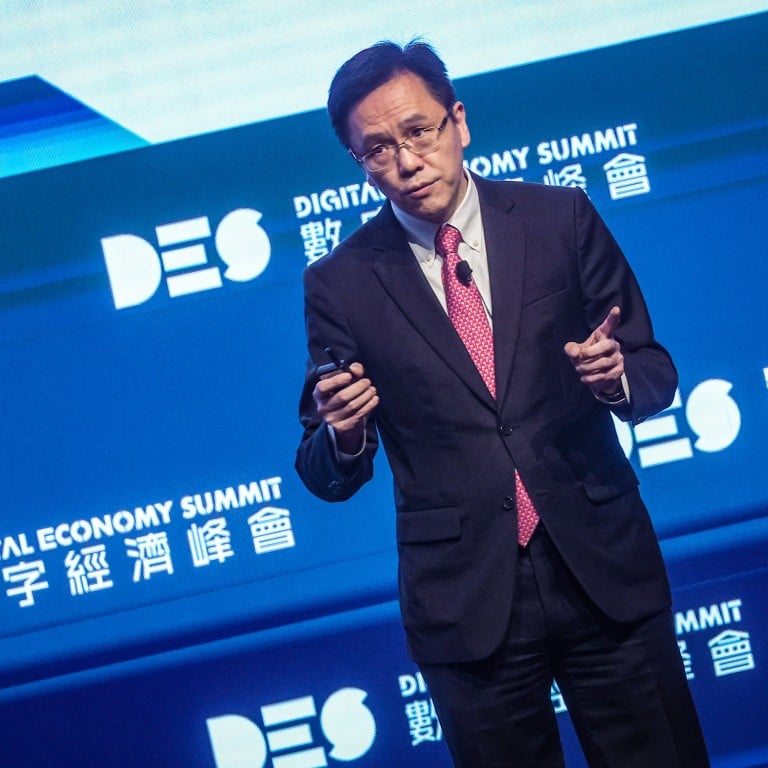
Hong Kong innovation chief pledges to step up efforts to attract talent, capital to stop firms from leaving for ‘places with money’
- Secretary for Innovation, Technology and Industry Sun Dong also expresses optimism, pointing to city’s edge in bringing in top people despite current manpower shortage
- He says city needs to attract more foreign investment in pushing tech sector forward given that many companies lack resources to advance
Hong Kong’s innovation minister has acknowledged that the city lacks talent and investment in technological development, pledging to step up efforts to attract overseas professionals and private capital in a bid to prevent firms from leaving for “places with money”.
But Secretary for Innovation, Technology and Industry Sun Dong also expressed optimism about the industry advancing, pointing to the city’s edge in bringing in top people despite the current manpower shortage.
“When it comes to getting things done, there is not enough talent,” Sun told a radio show on Sunday.
“It is related to how Hong Kong developed the industry in the past. Traditionally, we do not have much of a technology industry or a lot of related industries.”
How environmental concerns may interrupt Hong Kong’s planned border tech hub
Sun said the situation had improved after the administration rolled out a series of measures, including the Top Talent Pass Scheme.
The initiative was introduced in December 2022 to lure more professionals to the city by offering two-year visas, which can only be extended if the holders are employed or set up a business in Hong Kong.
“I believe we will have more and more talent in a few years if we keep going in this direction,” Sun said.
He also said the city needed to attract more foreign investment in pushing the technology sector forward given that many companies lacked resources to advance.
He noted that three major investment funds set up by the government, the Hong Kong Science and Technology Parks Corporation and Hong Kong Cyberport Management Company, had invested more than HK$800 million in 88 start-ups, luring more than HK$16.7 billion in private investment, as of April.
“From the future point of view, this investment scale is not enough … We are reviewing how the government’s funds can be more proactive and play a greater leading role, as well as encouraging more private investment,” Sun said.
“If we do not make up for this shortcoming, these companies either cannot develop or they leave Hong Kong and head to places with money. That will be the biggest loss for Hong Kong.”
Sanctions, global headwinds ‘will have little effect on Hong Kong tech sector’
Separately, Sun said the government aimed to launch an artificial intelligence application internally to improve work efficiency, while it also envisioned rolling out more products to improve residents’ livelihood.
Sun noted mishaps as the administration worked on building Hong Kong into a smart city.
Among high-profile glitches was an electronic voter registration system failure that briefly interrupted polling during the district council election in December.
Just last week, the exam authority had to suspend the use of a new digital roll-call system for students because it crashed twice at the beginning of the Diploma of Secondary Education exams.
“Many incidents look like a technological issue on the surface but behind it, it is all about a management problem,” the minister said.
Sun added that both the public and private sector had to make an effort in the city’s digital development, pointing to strengthening information security as an example.
“Many good policies and cultures can only be built up after society has been through a lot of lessons, with some that are quite painful,” Sun said. “I still have faith in Hong Kong.”

